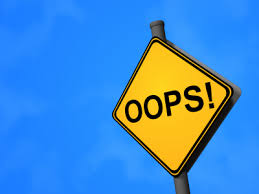 There has been a lot of controversy about the recent Barron’s list of the “25 Most Effective Givers”, and a column by Cindy Gibson in The Nonprofit Quarterly gave me something to ponder. I’ve used the terms ‘philanthropy’ and ‘charity’ to indicate different strategies of giving – not to disparage one over the other, since both are needed – but to clarify what I was talking about. Gibson made a simple but convincing argument that charity IS philanthropy. One of the online comments (by Rachel F.) also made a particularly useful point about logic models and their place in helping charity become more effective: "Logic models meet real needs in real communities every day. Consider this simple model used by soup kitchens everywhere: We feed folks in our community who are hungry [action], when & where they are hungry [strategy], so that we meet even a part of this community's day-to-day hunger needs [goal], thus improving the lives of folks in our community as a whole [meta-goal]. Add in relevant performance indicators (Are there more people who are less hungry in our community? Are there people still going hungry day-to-day that we can reach?) and you're working toward real effectiveness." Charity is not only of value but can be effective. I’ll attempt not to use the word in a way that infers that ‘charity’ is something less-than philanthropy in the future. —Julia
0 Comments
 I have harped virtually all through this Blog on making mistakes. A 27-minute video made by the Communications Network showcases Susan Herr, president of PhilanthroMedia talking to Grant Olphant, president of the Pittsburgh Foundation in a conversation called 'What's the Upside of Failure?' It is worth a listen. Grant talks about specific 'mistakes' in his past and why saying "oops" is worthwhile. Susan also mentioned a new article, Philanthropy and Mistakes:An untapped resource by Robert Giloth and Susan Gerwirtz of the Annie E. Casey Foundation. It identified several types of common mistakes:
The article also briefly describes a few case studies about foundation failures, one that discusses the "dangers of outcome measures". Cheers to oops! —Julia |
AuthorJulia Kittross: Archives
September 2017
Categories
All
|

Julia Kittross | Philanthropy Sherpas
[email protected] | www.PhilanthropySherpas.com | 206.334.7995
[email protected] | www.PhilanthropySherpas.com | 206.334.7995
 RSS Feed
RSS Feed